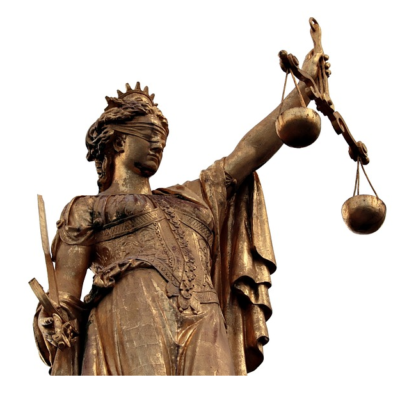Order of the Vice-President of the Court in Case C-619/18 R Commission v Poland

Poland must immediately suspend the application of the provisions of national legislation relating to the lowering of the retirement age for Supreme Court judges.
The order of the Vice-President of the Court is to apply, with retroactive effect, to the judges of the Supreme Court concerned by those provisions.
On 3 April 2018 the new Polish Law on the Supreme Court (‘the Law on the Supreme Court’) entered into force. Under that Law, the retirement age for Supreme Court judges has been lowered to 65. The new age limit applies as from the date of entry into force of that Law. It is possible for Supreme Court judges to continue in active judicial service beyond the age of 65 but this is subject to the submission of a statement indicating the desire of the judge concerned to continue to perform his duties and a certificate stating that his state of health allows him to serve, and must be consented to by the President of the Republic of Poland.
Thus, according to the Law, serving Supreme Court judges who reached the age of 65 before that Law entered into force or, at the latest, on 3 July 2018, were required to retire on 4 July 2018, unless they had submitted such a statement and such a certificate by 3 May 2018 inclusive and the President of the Republic of Poland had granted them permission to continue in active service at the Supreme Court. In making his decision, the President of the Republic of Poland is not bound by any criteria and that decision is not subject to any form of judicial review. Furthermore, the Law on the Supreme Court gives the President of the Republic of Poland the power to freely decide, until 3 April 2019, to increase the number of Supreme Court judges.
On 2 October 2018 the Commission brought an action for failure to fulfil obligations before the Court of Justice. The Commission considers that by, first, lowering the retirement age and applying that new retirement age to judges appointed to the Supreme Court up until 3 April 2018 and, second, granting the President of the Republic of Poland the discretion to extend the active judicial service of Supreme Court judges, Poland has infringed EU law.
Pending judgment by the Court, the Commission has requested the Court, in the context of interim proceedings, to order Poland to adopt the following interim measures:
(1) suspend the application of the provisions of national legislation relating to the lowering of the retirement age for Supreme Court judges;
(2) take all necessary measures to ensure that the Supreme Court judges concerned by the provisions at issue may continue to perform their duties in the same post, while continuing to enjoy the same status and the same rights and working conditions as they did before the Law on the Supreme Court entered into force;
(3) refrain from adopting any measure concerning the appointment of judges to the Supreme Court to replace the Supreme Court judges concerned by those provisions, or any measure concerning the appointment of a new First President of the Supreme Court or indicating the person tasked with leading the Supreme Court in its First President’s stead pending the appointment of a new First President;
(4) inform the Commission, one month after being notified of the order (of the Vice-President) of the Court at the latest, and every month thereafter, of all the measures it has adopted or plans to adopt in order to fully comply with that order.
According to the case-law of the Court, the court hearing an application for interim relief may order such interim measures only if (i) it is established that such an order is justified, prima facie, in fact and in law (fumus boni juris) and (ii) the order is urgent in so far as, to avoid serious and irreparable damage to the interests of the EU, it must be made and produce its effects before a final decision is reached. Where necessary, the court hearing the application must also weigh up the interests involved.
By her order today, the Vice-President of the Court, Ms Rosario Silva de Lapuerta, acting upon a request from the Commission and before the submission by Poland of its observations in the interim proceedings, provisionally grants all the Commission’s requests until such time as an order is made closing the interim proceedings.
First, regarding the fumus boni juris requirement, the Vice-President, without it being necessary to rule on the existence of fumus boni juris, emphasises that the arguments put forward by the Commission do not appear, prima facie, to be manifestly inadmissible or wholly unfounded. Accordingly, it is not inconceivable that the fumus boni juris requirement is met.
Second, regarding the urgency requirement, the Vice-President observes that the provisions of national legislation at issue have already begun to be applied, resulting in the retirement of a significant number of Supreme Court judges, including its President and two Presidents of Chambers. That fact, coupled with the increase, in parallel, of the number of Supreme Court judges from 93 to 120 authorised by the President of the Republic of Poland, the publication of more than 44 Supreme Court vacancies, including the post formerly occupied by its First President, and the appointment by the President of the Republic of Poland of at least 27 new judges, entails a profound and immediate change in the composition of the Supreme Court, which is, moreover, likely to be extended by new appointments. Should the action for failure to fulfil obligations brought by the Commission against Poland be ultimately upheld, all the decisions of the Supreme Court up until the decision of the Court of Justice regarding that action would have been given without the guarantees connected with the fundamental right of all individuals to an independent court or tribunal. In that regard, the Vice-President recalls that the requirement of judicial independence forms part of the essence of the fundamental right to a fair trial, a right which is of cardinal importance as a guarantee that all the rights which individuals derive from EU law will be protected and that the values common to the Member States set out in Article 2 TEU, in particular the value of the rule of law, will be safeguarded. The infringement of a fundamental right such as the right to an independent court or tribunal is thus capable, because of the very nature of the infringed right, of giving rise in itself to serious and irreparable damage. In the present case, the fact that the Supreme Court is a court of last instance and that the decisions of that court up until the judgment of the Court of Justice ruling on the action for failure to fulfil obligations will therefore have the authority of res judicata enable it to be established that there would be a real risk of serious and irreparable damage to individuals if the interim measures were not adopted and the action for failure to fulfil obligations were to be upheld by the Court. In those circumstances, the Vice-President finds, at this stage of the proceedings, that the urgency requirement appears to be met.
Third, the Vice-President examines whether the weighing up of the interests involved pleads in favour of ordering interim measures. She notes that, should the action for failure to fulfil obligations be dismissed, ordering the requested interim measures would merely postpone the application of the provisions of national legislation at issue. She considers in that regard that the ordering of such measures is not capable of seriously jeopardising the objective of the provisions of national legislation in question. Conversely, should the action for failure to fulfil obligations be upheld, the immediate application of such provisions would be likely to irreparably damage the fundamental right to an independent court or tribunal.



